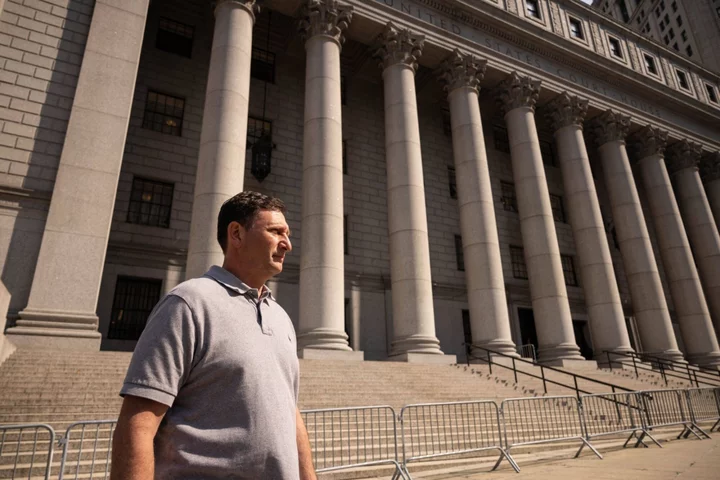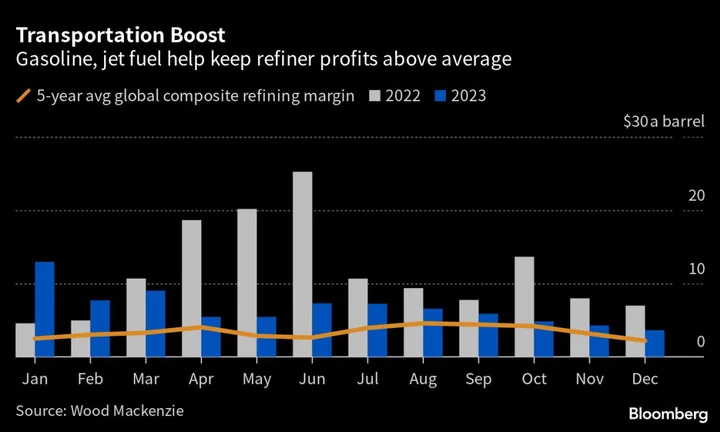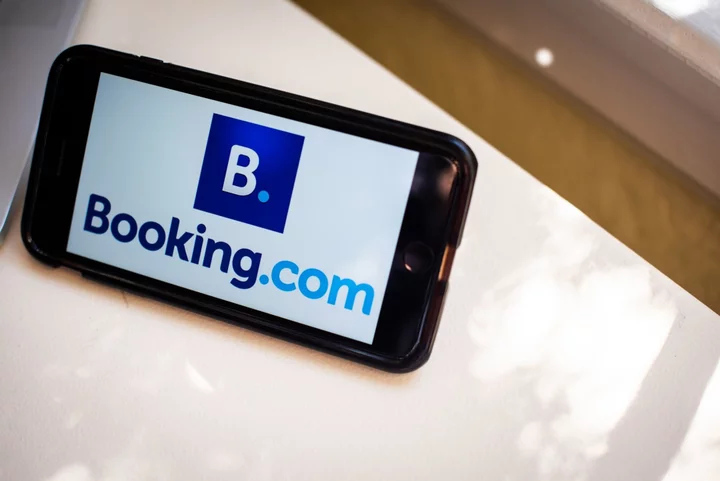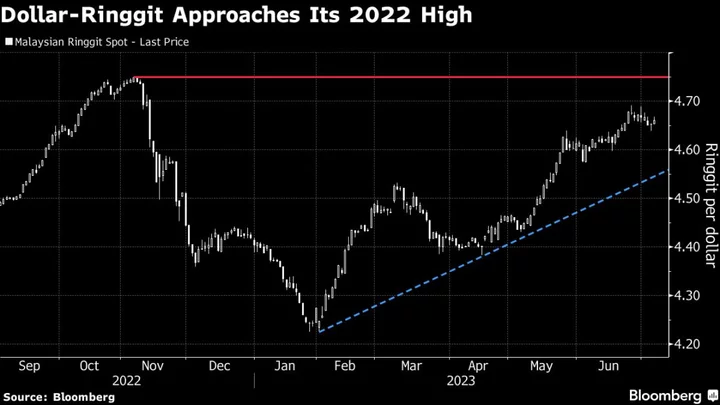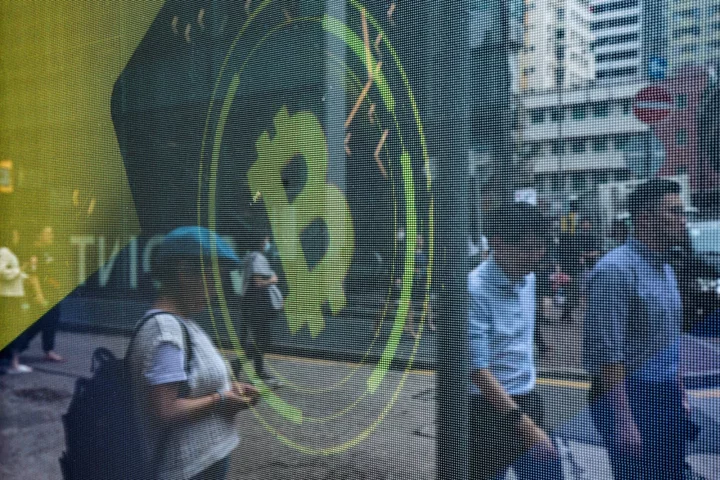At 6:30 on a steamy New York morning, FBI agents arrested former Celsius Network Ltd Chief Executive Officer Alex Mashinsky at his sprawling penthouse on Manhattan’s Upper East Side. Hours later he pleaded not guilty to an indictment accusing the 57-year-old of a scheme to defraud customers at his now bankrupt crypto lender.
A second person was charged, but was noticeably absent at the New York courthouse last week: Roni Cohen-Pavon, Celsius’s chief revenue officer and longtime lawyer. The Israeli citizen is accused of aiding some of Mashinsky’s alleged crimes, leaving customers billions of dollars short when the company imploded in the crypto market turmoil of 2022.
While Mashinksy was the public face of Celsius — which at its peak held $25 billion in customer assets — Cohen-Pavon operated behind the scenes. Yet prosecutors allege the 36-year-old attorney was key to one of Mashinsky’s schemes: manipulating Celsius’s native token — CEL — to mislead customers and line the executives’ pockets. He did this while living and working for Celsius in Israel, where he may remain unless the US pursues his extradition.
Still On Payroll
Unlike some insiders, including co-founder Daniel Leon who wasn’t charged with a crime, Cohen-Pavon was still on the payroll after the company filed for bankruptcy.
According to documents in the bankruptcy case, Cohen-Pavon was even in line to receive up to $239,000 to help restructure the company. He wasn’t placed on administrative leave until after the US Attorney’s office in Manhattan announced charges against him and Mashinsky on July 13.
Cohen-Pavon will be fired “in short order,” Celsius attorney Christopher S. Koenig said during a bankruptcy hearing days after the arrests.
His attorney, Jeffrey Brown, and Mashinsky’s attorneys, didn’t respond to requests for comment. Calls and a message to Cohen-Pavon via Signal weren’t returned.
Mashinsky and Cohen-Pavon, both Israelis, first met in a hotel lobby in Singapore in 2018 at the urging of a law firm partner of Cohen-Pavon. That year, Mashinsky helped establish New Jersey-based Celsius, a lender that gained popularity paying unusually high interest rates on digital-assets deposits.
Mashinsky called Cohen-Pavon Celsius’s lawyer “from the beginning” and one of the “secrets” to the company’s success on a July 2020 YouTube video.
“You said I have two missions for you: one keep me out of a trouble and two, make people understand it’s not too good to be true,” Cohen-Pavon recalled later in a question and answer session with Mashinsky on the video.
Prosecutors, of course, now say it was all too good to be true. The alleged manipulation personally benefited both executives, authorities say. Cohen-Pavon took home $3.6 million from selling his CEL holdings while Mashinsky allegedly pocketed $42 million, according to the indictment.
Look Them in the Eyes
In Celsius’s early days, Cohen-Pavon was still a partner at Herzog, Fox and Ne’eman. The firm is one of Israel’s leading law firms, founded half a century ago by three lawyers, including Chaim Herzog, who would later become the country’s sixth president.
Cohen-Pavon had a strong interest in crypto, he explained in the YouTube discussion, but wanted to meet Mashinsky and Leon to make sure they were the right fit.
“I need to look them in the eyes and tell them ‘you’re not going to scam anyone, you’re building something good I’m going to be proud of,’” Cohen-Pavon recalled. In 2018, Cohen-Pavon helped architect the Celsius initial coin offering, the results of which Mashinsky later embellished, prosecutors say.
In 2020, Cohen-Pavon allegedly helped craft a doomed deal with decentralized finance app KeyFi, which compounded Celsius’s financial woes. The deal was “forced” on Celsius by Mashinsky and Cohen-Pavon despite the objection of the firm’s CFO, a colleague recalled during a court-appointed examiner’s investigation.
Weekly Q&A’s
Despite concerns about Celsius internally, Mashinsky used his weekly Q&As to create a much rosier picture for customers. For instance, he claimed the ICO was a huge success. Celsius raised $50 million, Mashinsky claimed, and sold all the CEL tokens it had offered.
But in reality, prosecutors say, Celsius underperformed, raising only $32 million and failing to sell one third of its tokens. During his tenure at Celsius, Mashinsky developed a practice of inflating figures and making wildly inaccurate public statements, authorities allege.
By early 2021, according to the indictment, Mashinsky discovered a sizable hole in Celsius’s balance sheet, partly from using customer deposits to purchase CEL. He kept the problem under wraps, prosecutors say, and handpicked Cohen-Pavon to oversee Celsius’s frenzied CEL purchases on the open market.
Publicly, Celsius claimed to buy CEL to meet its promise of customer rewards. But in reality, prosecutors allege, it was buying well above that amount to artificially prop up the price of the cryptocurrency.
“The issue is that people are selling and no one is buying except for us,” Cohen-Pavon wrote in an October 2021 WhatsApp message in cited in the indictment. “The main problem was that the value was fake and was based on us spending millions (~8M a week and even more until February 2020) just to keep it where it is.”
By 2022, Cohen-Pavon had left his law firm and stepped in as Celsius’s interim chief financial officer, becoming one of at least six people to helm the CFO role during the company’s brief history before going bankrupt. His predecessor, Yaron Shalem, was embroiled in an unrelated money laundering probe in Israel and resigned, Bloomberg previously reported.
After Celsius filed for bankruptcy in July 2022, Cohen-Pavon wasn’t hard to find. He sat down twice for interviews with the court-appointed examiner Shoba Pillay as she picked apart the cause of the lender’s failure. He was also one of about 10 employees who new management retained to shepherd Celsius through a mammoth restructuring effort.
Possible Extradition
While announcing four charges, including fraud and market manipulation, against Cohen-Pavon last week, US Attorney Damian Williams wouldn’t say whether the office would seek his extradition.
Israel has historically erred against extraditing its own citizens to face charges in other jurisdictions, said Michael Zweiback, an attorney who worked on two cases involving extradition with Israel as a federal prosecutor. In 2007, the country changed its treaty with the US to send its citizens to America if any prison sentence is served back in Israel, but Zweiback says the process is still difficult.
“I can’t think of another country that as closely guards their independent process in terms of extradition,” Zweiback said. “They are the most stringent on every I being dotted and T being crossed as any ally in the western world.”
The case could unfold in other ways, he said, Cohen-Pavon could cooperate and be prepared to surrender or wait until Interpol issues a red notice and become a fugitive.
--With assistance from Olga Kharif and Steven Church.
(Adds more color in graph 21. An earlier version of the story corrected the names in the caption of the photo in the story)
Author: Ava Benny-Morrison

